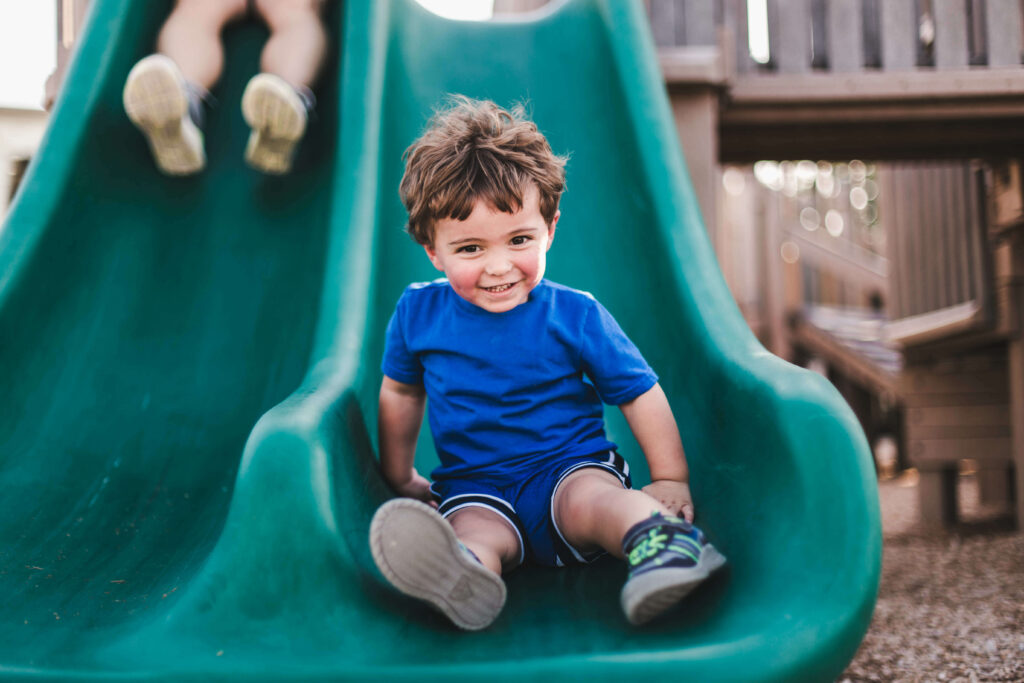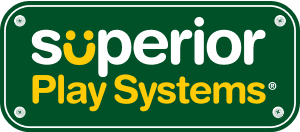Benefits Kids Get Going to a Playground

Playgrounds aren’t just places where kids run around and have fun, they’re essential for their growth in many ways.
Imagine a child scaling a climbing frame, feeling a sense of triumph as they reach the top. This simple act is more than play, it’s a building block to developing their strength and confidence.
For parents, understanding the impact of playgrounds can transform these spaces into powerful tools for fostering their child’s development.
1. Building Motor Skills
Key parts of playground equipment are designed to challenge and strengthen different parts of a child’s body.
Think of climbing structures that build upper body strength as kids pull themselves up.
Swings improve balance and coordination as they soar back and forth.
Slides and merry-go-rounds enhance spatial awareness, teaching kids how their bodies relate to the world around them.
2. Encouraging Physical Fitness
Playgrounds turn exercise into playtime fun. Running around, climbing, and swinging provide a lively way for kids to get their aerobic exercise.
According to the Centers for Disease Control and Prevention (CDC), children should engage in at least 60 minutes of moderate-to-vigorous physical activity daily.
Playgrounds make meeting this recommendation enjoyable and natural.
3. Combating Childhood Obesity with Exercise
In a world where screen time is on the rise, playgrounds offer a vital escape.
Research by the Journal of Research in Medical Sciences shows that children who regularly visit playgrounds have lower rates of obesity compared to those who don’t.
Playgrounds help kids burn off extra calories, build muscle, and develop healthy habits that last a lifetime. Swinging can be considered cardiovascular exercise. Experts say that just 15 minutes of swinging will burn around 50 calories.
4. Developing Social Skills
Social skills are our tools for getting along with others. They help us chat and listen, understand feelings, and behave in ways that make people enjoy being around us.
Picture a group of kids huddled around a jungle gym, figuring out how to take turns on the slide. Playgrounds are vibrant social settings where children naturally pick up essential social skills.
They learn how to share, negotiate, and communicate, all while having fun. These interactions are crucial for developing empathy and social competence that serve them well throughout their lives.
5. Promoting Teamwork
From group games to team sports, playground activities often require kids to work together.
Experts emphasize the role of unstructured play in developing crucial social skills like teamwork and cooperation.
Whether kids are teaming up for a game of tag or collaborating on a makeshift play structure, they’re learning the value of teamwork and understanding different perspectives.
6. Fostering Friendships
Regular trips to the playground are a great way for kids to make new friends and strengthen existing bonds.
As they interact with peers in a relaxed, fun setting, they build connections that contribute to their emotional development and create a sense of community.
These friendships can provide a strong support network and contribute to their overall well-being.
7. Building Self-Confidence
Going to a playground can be a helpful confidence-building activity for kids.
Imagine a child scaling the heights of a jungle gym or mastering the swing all on their own. These milestones aren’t just fun, they help give the feeling of confidence.
Research from PLOS One Journal indicates that children who regularly engage in physical playground activities show increased self-esteem and confidence in their abilities.
8. Alleviating Stress
Playgrounds offer more than just physical activity, they’re natural stress-busters.
An SSM Mental Health study found that time spent in outdoor play areas including playgrounds, is associated with reduced stress levels and improved mental well-being in children.
The open spaces and opportunities for free play help kids let off steam and express themselves, lifting their mood and enhancing their mental health.
9. Fostering Independence
Playgrounds also encourage kids to play and explore on their own. This freedom to navigate challenges helps them develop decision-making skills and build resilience.
As kids figure out how to overcome obstacles and make choices during playtime, they grow confidence and independence.
10. Boosting Problem-Solving Skills
Think of a child carefully climbing a challenging jungle gym or figuring out how to navigate a tricky obstacle course. These playground challenges aren’t just fun, they’re brain workouts.
The National Association for the Education of Young Children (NAEYC) reports that playgrounds present children with physical challenges that enhance problem-solving skills and strategic thinking.
11. Fostering Creativity and Imagination
Playgrounds can spark imagination and creativity.
Whether they’re pretending to be daring pirates or brave explorers, the playground serves as a stage for their wildest adventures.
Unstructured play in playground settings boosts children’s creativity and imaginative thinking.
12. Encouraging Learning Through Play
Playgrounds are also great for practical learning. Sensory equipment engages kids’ tactile senses, while the social interactions they experience help them develop important life skills.
From negotiating turns to resolving conflicts, these real-world lessons complement their classroom learning and prepare them for future challenges.
Playground interactions enhance children’s abilities to communicate, share, and resolve conflicts.
Safety Tips for Parents
To ensure a safe and enjoyable playground experience, keep these tips in mind:
1. Inspecting the Playground
Before letting children play, here are important things to check on the playground:
- Make sure the play surfaces are cushioned to reduce the risk of injuries from falls
- Inspect all areas for protruding pieces or sharp surfaces.
- Walk around the equipment to check for tripping hazards.
- Check for openings in guardrails or between ladders that kids could get stuck in. Openings should be between 3.5 inches and 9 inches.
- Look for sharp objects, debris, animal droppings, and insects in the sandbox.
2. Effective Supervision
Always keep a close watch on children to ensure their safety. In crowded areas, it’s easier for kids to get bumped or run into other children, so encouraging safe play and setting clear behavior rules can help prevent accidents.
3. Teaching Playground Etiquette
Teach children to wait their turn, share equipment, and follow playground rules. This not only promotes a safer environment but also helps them develop social skills and respect for others.
Conclusion
Next time you take your child to the playground, remember, it’s not just about the play. It’s about the growth, the learning, and the countless benefits that come with it.
To maximize these benefits, it’s essential to have access to safe playgrounds. Superior Play Systems offers a selection of Children’s Play Parks designed to enhance playground safety and engagement.
We also have fun and interactive indoor playgrounds you can bring your kids to play.

